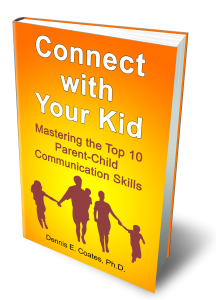The other day I was sitting in the waiting area of my dental clinic, along with seven other people. One of them was a woman in her mid-30s who was holding a small dog in her lap. I was amazed at how quiet and well-behaved the dog was. But a dog in a dental clinic? How would that work? And what kind of person brings a dog into a dental clinic? I wondered about her, trying to imagine what was going on in her mind. But as usual, my theories didn’t amount to much. It’s very hard to imagine what life is like for another person.
The more time you spend with a person, the more you learn about them. You get a sense of familiarity with family members, but nearly nothing with total strangers.
What’s going on in the mind and heart of your child? What’s it like to grow up day by day in your home? At any given moment, what is your child thinking and feeling? You have years of daily contact going for you. Plus, you remember what it was like to be a child.
I’m talking about empathy. When conflicts or frustrations happen, do you try to appreciate your child’s perspective? Who they are right now and what they’re thinking and feeling?
All you can do is make your best effort to see the situation from their perspective. What’s it like to be them in that moment? Make the situation about them, not you, and you’ll have a chance to say and do the things that will resolve the issue and guide them. Empathy is step one for a lot of successful communication.
For more about parent-child communication, I recommend my book, Connect with Your Kid.


